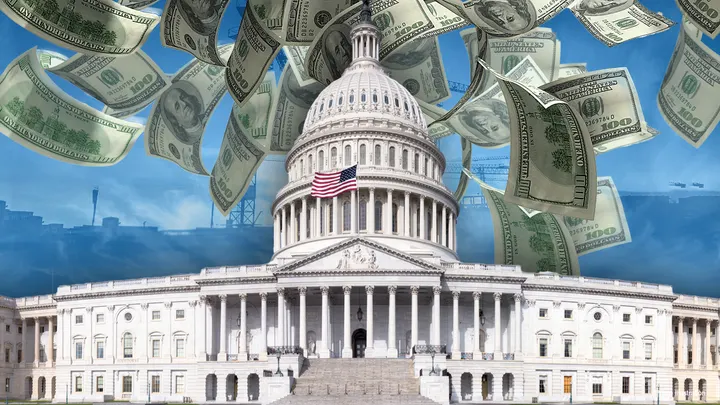Be Prepared! Bi-Partisan Tax Relief Passes House

On Tuesday, January 16, 2024, Chairman Jason Smith (R-Missouri) of the House Ways and Means Committee and Chairman Ron Wyden (D-Oregon) of the Senate Finance Committee announced agreement on a ~$78 billion deal for tax relief, both for businesses and families.
On Friday, January 26, 2024, the Ways and Means Committee approved the resulting bill, with a vote of 40-3, and on Wednesday, January 31, the House of Representatives passed it, 357-70. The legislation would amend, in part:
Business’ Research & Development (R&D) Expenses:

Prior to enactment of the TCJA, Section 174 of the Internal Revenue Code (IRC) enabled businesses to deduct 100% of R&D expenses in the year they were incurred.
After the enactment of the TCJA, – i.e., under the law at present – most R&D expenses incurred for tax years beginning after December 31, 2021, must be amortized over a 5-year period (15 years in cases where certain R&D or experimental expenses are attributable to foreign research), beginning at the midpoint of the tax year in which the expenditures were made or incurred.
The proposed changes would restore R&D expenses to full deductibility in the year the expenditures were made through the tax year ending December 31, 2025 – including, retroactively, tax years 2022 and 2023.
According to the R&D Coalition, a cross-industry partnership among small, medium, and large business concerns, every $1 billion spent on R&D supports ~17,000 U.S. jobs earning ~$1.4 billion.
Industries Benefitting from R&D Tax Relief:
One of the beauties of R&D tax relief is that many industries will benefit. Some R&D-heavy industries are:
- Technology & software
- Manufacturing
- Pharmaceuticals and biotechnology
- Agriculture
- Construction
Business Interest Expense Limitation:

IRC Section 163(j) limits the deduction of certain business interest expenses. Prior to 2017, these limitations were largely in place to prevent multi-national entities from shifting earnings to lower-tax jurisdictions from higher-tax jurisdictions. The applicability of Section 163(j) was limited only to certain entities and under specific conditions.
However, the TCJA made significant changes to Section 163(j), applying limitations to the deductibility of business interest expenses to all U.S. businesses, starting with tax year 2018.
The Tax Relief of 2024 proposes to restore a less restrictive limitation on business deductions for net interest expense, returning to a 30 percent limit based on EBITDA (earnings before interest, taxes, depreciation, and amortization) rather than EBIT (earnings before interest and taxes); the tighter limitation based on EBIT took effect beginning in 2022, and the proposal would allow companies an election to use the looser limitation for 2022 and 2023 and require the EBITDA-based limitation for 2024 and 2025.
100% Bonus Depreciation:

Under the TJCA, qualified property placed into service after September 27, 2017 and before January 1, 2023 (January 1, 2024 for certain longer-production property and certain aircraft) were eligible for 100% bonus depreciation in the year the property was put into service.
This bonus depreciation was to phase down by 20% each tax year beginning with 2023. The bonus depreciation was to have been as follows:
- 2023 – 80%
- 2024 – 60%
- 2025 – 40%
- 2026 – 20%
- 2027 – 0%
Under the proposed bipartisan tax relief, as proposed, the 100% bonus depreciation would be extended to include property placed into service after December 31, 2022 and before January 1, 2026 (January 1, 2027 for the longer-production property and aircraft as noted above).
Other Notable Business Tax Relief Provisions:
These include:
Increased Limits on Expensing Depreciable Bonus Assets:

IRC Section 179 permits expensing the cost of qualifying property rather than recovering the cost via depreciation. Under current law, the expensing of such costs was capped at $1 million per tax year for tax year 2018, and was limited to cover qualifying property costing $2.5 million per year. These amounts were adjusted for inflation; the expense for 2023 was limited to $1.16 million, and the cost total qualifying property limited to $2.89 million.
The proposed tax relief would increase the expensing of qualifying property for 2024 to $1.29 million, with a cost cap for such property of $3.22 million. These amounts would be inflation-adjusted for tax years after 2024.
Increase in 1099-NEC and 1099-MISC Reporting Threshold:

For tax years beginning after December 31, 2023, the threshold for requiring the issuance of 1099-NEC and 1099-MISC forms would rise from $600 to $1,000 (which we think almost everyone we know would be glad of!).
There is, of course, much more in the tax relief proposal, including an expansion of the child credit and increased funding for low-income housing, among other items.
The proposed tax relief is in theory effectively revenue-neutral, its costs to be offset by changes to the Employee Retention Tax Credit (ERC).
Final Thoughts
There is much still to be worked out, and we will wait with interest for further details as they emerge. There is at this point some pushback in the Senate against the delicate balance of competing interests, and there is no guarantee the House bill will result in enacted legislation.
However, we think this would be a step in a good direction for the nation and the economy – in other words, for all of us. And there is a lot here that businesses can, should all the business-friendly provisions of the proposal be enacted into law, leverage to their benefit – it wouldn’t hurt to consult your CPA now, rather than waiting, particularly if there may be a need to amend prior-year tax returns.
Having passed in the House Ways and Means Committee by a vote of 40-3 on Friday, January 26, 2024, the bill for tax relief has moved to the full House of Representatives for a vote.
Stay tuned for further information as it becomes available.
If you would have any questions concerning how one or more of these provisions could be leveraged to your business’ benefit, please click here to email us directly – we are always here to help you!
Until next time –
Peace,
Eric
